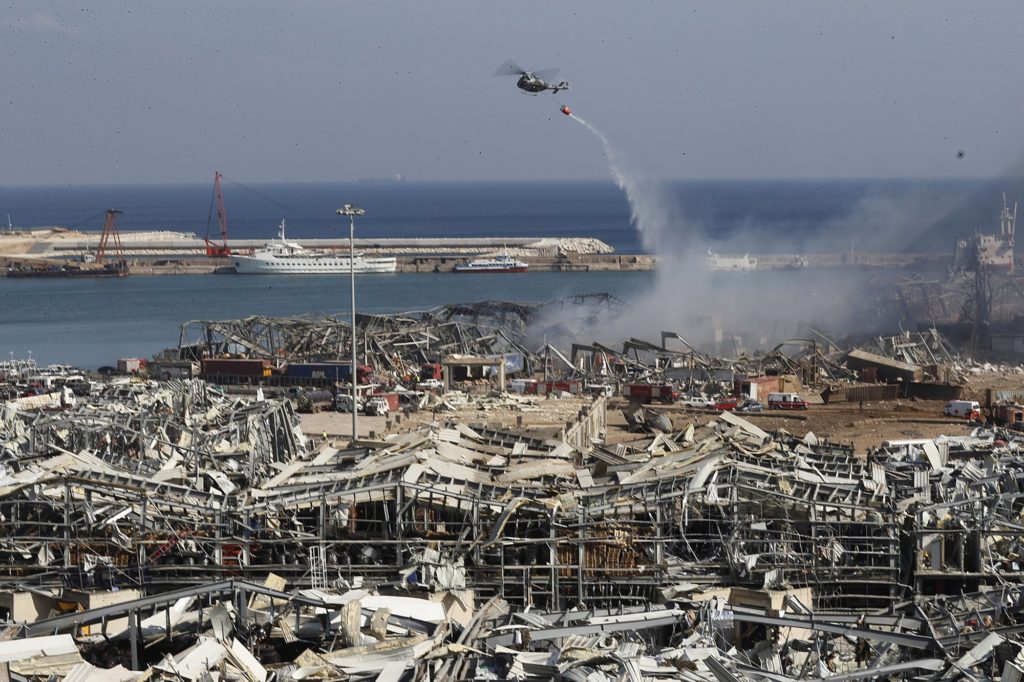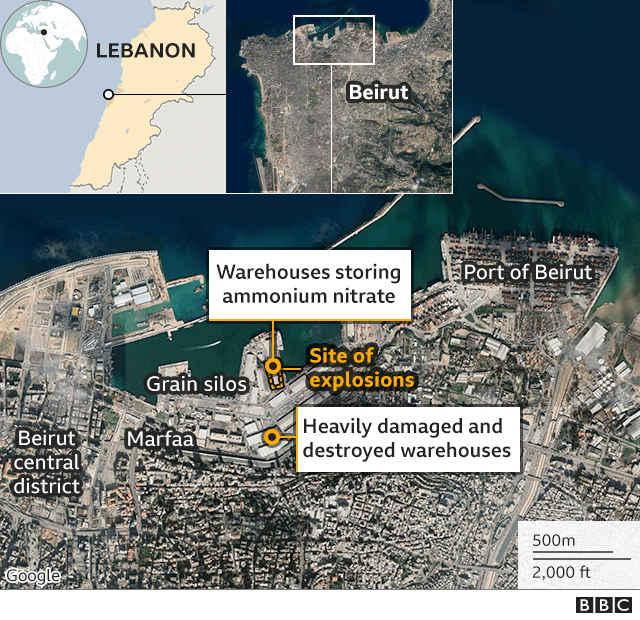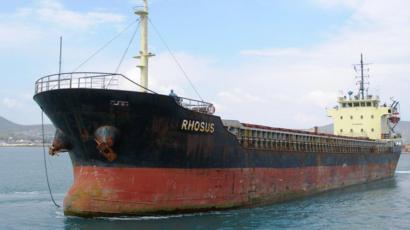From BBC News
Lebanon’s government has blamed the huge blast that devastated parts of Beirut on the detonation of 2,750 tonnes of ammonium nitrate stored at the city’s port.
People have expressed anger and disbelief that such a large quantity of potentially explosive material was kept inside a warehouse without any safety measures for more than six years, so close to the centre of the city.
The government has not named the source of the ammonium nitrate, but the same amount of the chemical arrived in Beirut in November 2013 on a Moldovan-flagged cargo ship, the MV Rhosus.
The Russian-owned vessel set sail that September from Batumi, Georgia, heading to Biera, Mozambique.
It was carrying 2,750 tonnes of ammonium nitrate, which typically comes in the form of small pellets that are widely used as agricultural fertiliser but can also be mixed with fuel oil to make explosives for the mining and construction industries.
While sailing through the eastern Mediterranean the Rhosus suffered “technical problems” and was forced to dock at Beirut’s port, according to a 2015 report for industry newsletter Shippingarrested.com that was written by Lebanese lawyers who represented the crew.

Shortly afterwards, the vessel was “abandoned by her owners after charterers and cargo concern lost interest in the cargo”, according to the lawyers. It was also subject to legal claims from creditors.
Meanwhile, the crew still confined to the vessel were running out of food and supplies. The lawyers said they applied to the Judge of Urgent Matters in Beirut for an order authorising them to return home, emphasising “the danger the crew was facing given the ‘dangerous’ nature of the cargo” in the ship’s holds.

The judge eventually agreed to allow the crew to disembark and in 2014 the port authorities transferred the ammonium nitrate into “Warehouse 12”, next to the grain silos. The lawyers said the cargo was “awaiting auctioning and/or proper disposal”. Read more from BBC




